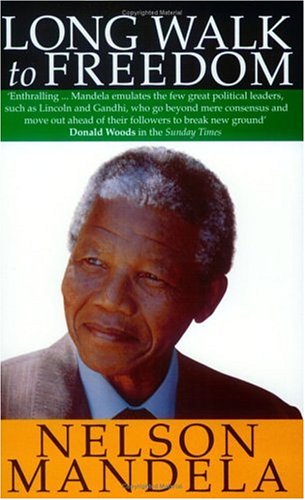 One of the true legends and pioneers of bass in Britain has died – Mo Foster passed away from Cancer aged 78 a couple of days ago.
One of the true legends and pioneers of bass in Britain has died – Mo Foster passed away from Cancer aged 78 a couple of days ago.
His Wikipedia entry gives a pretty great overview of his career, and others have written extensively about that, so I’m just going to write about our friendship and what he meant to me.
I’m not sure exactly where and when I met Mo, but I’m pretty sure it would’ve been through Bassist Mag, probably at the National Music Show at Wembley in the late 90s. Certainly by the time I was putting my first album together, we were friends and were talking regularly. But I was already deeply familiar with Mo, not just as the bassist behind the absolutely exquisite line on Howard Jones’ No-one Is To Blame (I was silently gutted when I didn’t get to play it on tour with Howard – he did a beautiful solo vox/piano version of that song to finish the set – musically brilliant, but I desperately wanted to play Mo’s line!) and with Phil Collins, but because he wrote the bass column in ‘Making Music’ magazine – Making Music was the free music mag in the UK in the 80s and 90s, and I still remember how it felt when Mo wrote that he envied people who’d never heard Hejira because they still had that first listen to experience. His column was full of incredible advice, stories and brilliance. So meeting him was already a treat. But that wasn’t the half of it. He treated me like a peer, like a fellow pro, and was incredibly supportive of my steps into solo playing. But as anyone who knew Mo knows, he was never one to sugar-coat anything. When I sent him a copy (possibly a pre-release copy? I can’t remember) of my first solo album, And Nothing But The Bass, his first comment when I next saw him was ‘you know the first chord is out of tune, right?’ and he pressed me to find better ways to end loop tunes that just fading everything out. He was endlessly encouraging, but had no time for mindless praise. He pushed me to make better music. And given how much of an influence his solo albums Southern Reunion and Bel Assis already were by then, it was a huge fucking deal for Mo to take the time to even listen, let alone give me advice.
When it came time for Mo to make his next record, Time To Think, he was recording it in a church in Oxford (St Michaels Church, Summertown) and he invited me to call in to the sessions – to sit and listen while Mo and the band (including his closest friend and longest collaborator, Ray Russell) recorded a couple of the tracks from the album was unbelievable. And then I got to follow through the trials and tribulations of getting it mixed, fixing a fairly major recording error (to hear the beauty of the album, you’d never know that’s what happened!) and to then play it to death when it was released.
And here’s how Mo shaped my own music – when it came time to make my second album, what became Not Dancing For Chicken, I was hanging out with a lot of looping musicians, people who were really pushing looping tech in exciting and radical directions. Truly brilliant experimenters. I was absorbing their ideas, throwing in a few of my own, and the initial sessions for NDFC featured a whole ton of squeaks and bleeps and live cut up loops. I tried to record it with a mic’d amp, we did two days of recording and then I took those recordings home. At the time I was listening to two albums on repeat – one was Time To Think, the other was an album by Dyzrhythmia, featuring my other great bass mentor of the time, Danny Thompson. I was sat one afternoon after reviewing the recordings for NDFC, listening to Time To Think and it suddenly, and obviously, struck me what was missing – TUNES! I’d got so into the tech side of things that I’d lost that my great strength was playing melodies. I was good at tunes! The bleepy stuff was well done, but it lacked that essential thing that was, at the time, my real focus. And it was Mo’s album that reminded me. I immediately hit record and the first thing I recorded was a tune that I named Danny & Mo. Two incredible humans who gave me way more of their time than I could ever have hoped for and whose encouragement and endorsement was absolutely pivotal to me giving this solo bass lark a proper go. Mo was a proper legend who not only gave me the time of day and a huge amount of encouragement, but gave me the kind of critical feedback that was designed to help me make better music. And it did.
I would see Mo periodically through the years, visiting him at home on occasion, and every time he’d have another story, a joke, something to make everyone laugh. The Cliff Richard ‘dogshit dance’ story, Ted, His Cock And His Band, Stevie Shatner-Nicks… stories and jokes that anyone who knew Mo knows from the punchline… He’d email me, I’d go and see him play (I remember one particularly beautiful show at Lauderdale House), he even told me he wanted me to guest on an album he was putting together. In 2013, as per this picture, my 6 string fretless Modulus was, he said, the first 6 string bass he’d ever played, and he sounded amazing on it.
Back in May he emailed me asking about cancer treatment, and I did my best to help him with a little advice, but it would be the last time I heard from him.
I already miss Mo, and the bass world has fewer laughs in it. Farewell to one of our beloved instrument’s great advocates and finest raconteurs.


_1988_promo_photo.jpg)


